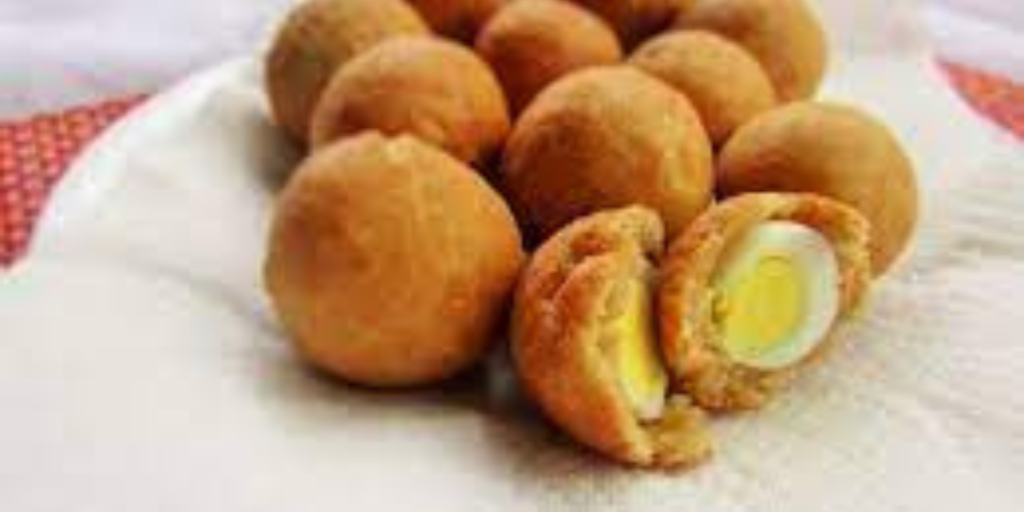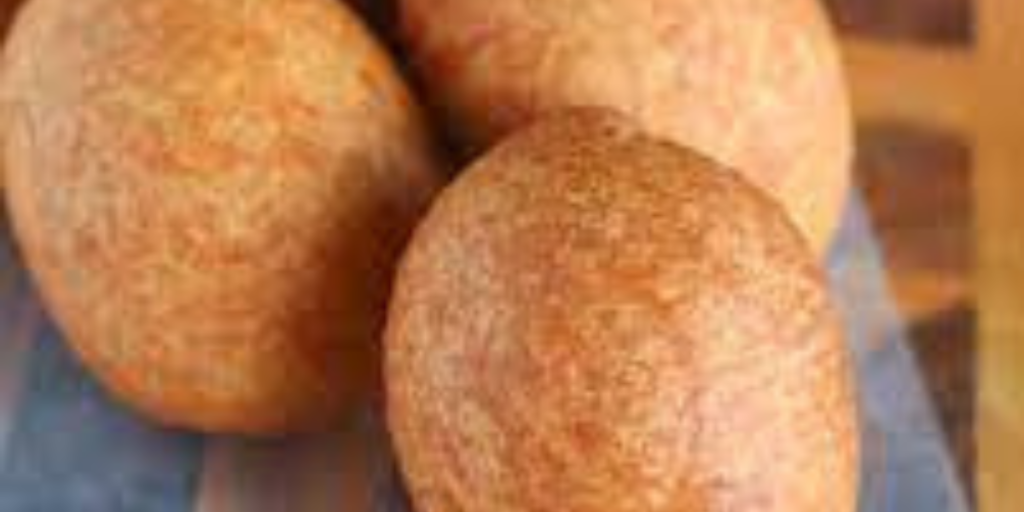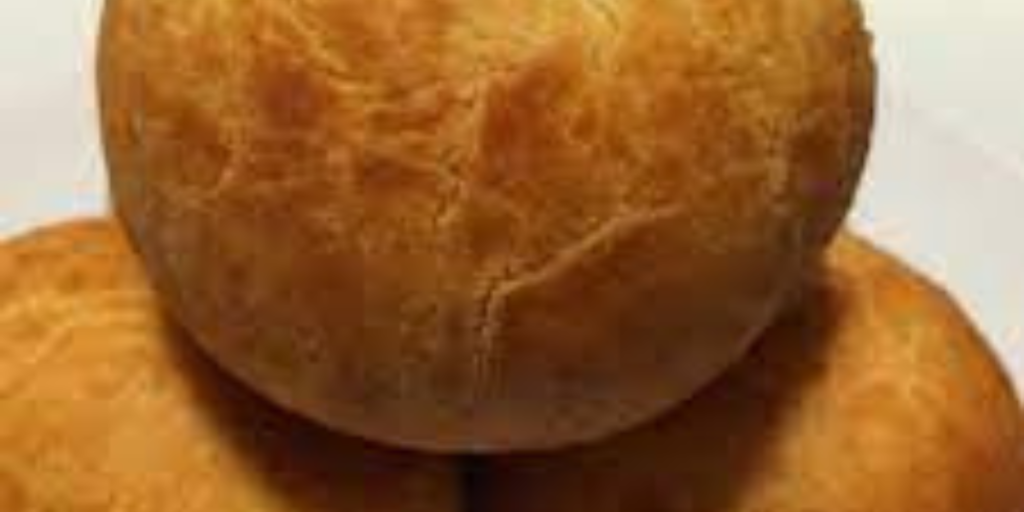Table of Contents

Eggroll : Nigeria, a land of vibrant cultures and rich culinary traditions, boasts an array of delectable snacks that tantalize the taste buds and bring people together. Among these beloved treats is the Nigerian snack, a delightful snack that combines the simplicity of a boiled egg with the crispy, golden goodness of a deep-fried dough. Known locally as Eggroll, this snack has become a staple in Nigerian households, street food stalls, and festive gatherings.
Best Eggroll recipe for for 1 kg flour?
They are more than just a snack; they represent a piece of Nigerian heritage and are a testament to the ingenuity and resourcefulness of Nigerian cooks. Whether enjoyed as a quick breakfast, a midday snack, or a party appetizer, They offer a satisfying and flavorful experience that is hard to resist.
In this comprehensive guide, we will delve into the essential ingredients and detailed procedure for making the perfect Nigerian Snack. As a seasoned blogger with a passion for Nigerian cuisine, I aim to provide you with all the insights and tips needed to master this delightful snack. Let’s embark on this culinary journey together, exploring every step of the process to create Eggrolls that are not only delicious but also deeply rooted in Nigeria.
Understanding the Core Ingredients for Nigerian Eggrolls

Creating the perfect Eggroll begins with understanding and selecting the right ingredients. Each component plays a crucial role in achieving the ideal texture and flavor.
Flour: The Base of the Dough
All-Purpose Flour: Versatile and Reliable
The primary ingredient in the dough is all-purpose flour. This type of flour is chosen for its versatility and ability to create a dough that is both firm enough to encase the egg and tender enough to yield a delightful bite. For this recipe, 1 kg of all-purpose flour serves as the base, providing the structure and bulk needed for the dough.
What are the ingredients in tiger nuts drink? Best 1
Eggs: The Heart of the Eggroll
Boiled Eggs: A Protein-Packed Core
Boiled eggs are the central component of The Nigerian Snack. For a 1 kg flour-based recipe, you will need approximately 10-12 medium-sized eggs, depending on the size of your Eggrolls. The eggs should be hard-boiled to ensure they remain intact during the frying process. They add a rich source of protein and create a satisfying contrast to the crispy dough exterior.
Sugar: Adding a Touch of Sweetness
Granulated Sugar: Balancing Flavor
Sugar is added to the dough to provide a subtle sweetness that balances the savory taste of the eggs. For this recipe, 150 grams of granulated sugar is used. This not only enhances the flavor but also helps in achieving a beautifully browned crust during frying.
Butter: Enhancing Texture and Flavor
Margarine or Butter: Rich and Creamy
Butter or margarine is incorporated into the dough to enrich its texture and flavor. For this recipe, 250 grams of margarine or butter is needed. This ingredient adds a layer of richness and helps create a tender, flaky dough that crisps up nicely when fried.
Baking Powder: Ensuring Fluffiness

Leavening Agent: Light and Airy Dough
Baking powder acts as a leavening agent, helping the dough to rise and become light and airy. For this recipe, 2 tablespoons of baking powder are used. This ensures that the dough puffs up nicely around the egg, creating a delightful texture.
Milk: Adding Moisture and Flavor
Liquid Milk: Smooth and Rich
Milk is added to the dough to provide moisture and a rich flavor. For this recipe, 500 ml of liquid milk is required. This helps in creating a smooth and pliable dough that is easy to work with and enhances the overall taste of it.
Salt: Balancing Flavors
Table Salt: Essential Seasoning
Salt is a crucial ingredient that helps to balance the flavors in the dough. For this recipe, 1 teaspoon of table salt is used. It enhances the sweetness of the sugar and the richness of the butter, creating a well-rounded flavor profile.
Coconut Rice Recipe with Desiccated : Best 2024 Recipe
Oil: For Frying
Vegetable Oil: Perfect for Deep Frying
Vegetable oil is used for frying. It is important to choose an oil with a high smoke point to ensure the Eggrolls cook evenly and achieve a crispy exterior. For this recipe, approximately 1-2 liters of vegetable oil are needed to deep-fry the Eggrolls.
The Step-by-Step Procedure for Making Nigerian Eggrolls

Step 1: Preparing the Ingredients
Before you begin, gather and prepare all your ingredients to ensure a smooth cooking process.
Boiling the Eggs
- Place the eggs in a large pot and cover them with water.
- Bring the water to a boil and let the eggs cook for about 10-12 minutes.
- Once cooked, transfer the eggs to a bowl of cold water to cool.
- Peel the eggs once they are cool enough to handle and set them aside.
Measuring the Dry Ingredients
- Measure out 1 kg of all-purpose flour and sift it into a large mixing bowl.
- Add 150 grams of granulated sugar, 2 tablespoons of baking powder, and 1 teaspoon of salt to the flour.
- Mix the dry ingredients thoroughly to ensure even distribution.
Step 2: Mixing the Dough
Incorporating the Butter
- Add 250 grams of margarine or butter to the dry ingredients.
- Use your fingers or a pastry cutter to incorporate the butter into the flour mixture until it resembles coarse crumbs.
Adding the Liquid Ingredients
- Gradually add 500 ml of liquid milk to the flour mixture.
- Mix the ingredients together until a smooth and pliable dough forms.
- If the dough is too dry, you can add a little more milk, one tablespoon at a time, until the desired consistency is achieved.
Step 3: Assembling
Dividing the Dough
- Divide the dough into 10-12 equal portions, or adjust the number of portions based on the number of eggs you have.
Wrapping the Eggs
- Take one portion of the dough and flatten it into a circle using your hands or a rolling pin.
- Place a boiled egg in the center of the flattened dough.
- Carefully wrap the dough around the egg, ensuring that it is completely covered.
- Pinch the edges to seal the dough and shape it into a smooth ball.
- Repeat the process for the remaining portions of dough and eggs.
How To Make Double leavening Eggroll
Step 4: Frying
Heating the Oil
- Pour enough vegetable oil into a deep fryer or large pot to submerge the Eggrolls completely.
- Heat the oil over medium heat until it reaches a temperature of about 350°F (175°C).
Frying the Eggrolls
- Carefully lower the Eggrolls into the hot oil, a few at a time, ensuring not to overcrowd the pot.
- Fry the Eggrolls until they are golden brown and crispy, about 5-7 minutes.
- Use a slotted spoon to remove the Eggrolls from the oil and transfer them to a paper towel-lined plate to drain excess oil.
- Repeat the frying process for the remaining Eggrolls.
Step 5: Serving and Enjoying
- Allow the Eggrolls to cool slightly before serving.
- Enjoy your homemade Nigerian Eggrolls warm or at room temperature. They can be served as a snack, appetizer, or part of a meal.
Egg Rolls: A Delicious and Easy-to-Make Snack
Tips and Variations: Personalizing Your Nigerian Eggroll Recipe

Tips for Perfect Eggrolls
Ensuring Even Cooking
To ensure that the Eggrolls cook evenly, maintain a consistent oil temperature. If the oil is too hot, the Eggrolls may brown too quickly on the outside while remaining undercooked inside. If the oil is not hot enough, the Eggrolls can become greasy.
Achieving the Right Dough Consistency
The dough should be smooth and pliable, not too sticky or too dry. If the dough is too sticky, add a little more flour. If it is too dry, add a bit more milk.
Variations to Try
Adding Spices
For added flavor, consider incorporating spices into the dough. Nutmeg, cinnamon, or allspice can add a warm, aromatic quality to the Eggrolls.
Using Whole Wheat Flour
For a healthier alternative, you can use whole wheat flour instead of all-purpose flour. This will increase the fiber content and add a nutty flavor to the Eggrolls.
How to prepare Tiger Nuts Milk+NUTRITIONAL VALUES
Experimenting with Fillings
While traditional Nigerian Eggrolls are made with boiled eggs, you can experiment with different fillings. Consider using sausage, cheese, or even vegetables to create unique variations of the Eggroll.
Nutritional Benefits of Nigerian Eggrolls
Balanced Nutrition
Nigerian Eggrolls offer a balanced combination of carbohydrates, protein, and fat, making them a nutritious snack or meal component.
Protein-Rich
The boiled eggs provide a substantial amount of protein, essential for muscle repair and growth, as well as overall body function.
Energy Boosting
The carbohydrates from the flour and sugar provide a quick source of energy, while the fat from the butter and oil ensures sustained energy release.
Essential Vitamins and Minerals
Ingredients like eggs, milk, and butter contribute essential vitamins and minerals, supporting various bodily functions and overall health.
Conclusion: Mastering the Art of Nigerian Eggrolls
Creating the perfect Nigerian Eggroll is a delightful and rewarding experience that combines traditional culinary techniques with the joy of sharing a beloved snack. By following this comprehensive guide, you can master the art of making Eggrolls using 1 kg of flour, and enjoy the rich, flavorful results.
Nigerian Eggrolls are more than just a snack; they are a symbol of cultural heritage and a testament to the creativity and resourcefulness of Nigerian cuisine. Each bite of an Eggroll tells a story of tradition, community, and the simple pleasures of home-cooked food.
So, gather your ingredients, roll up your sleeves, and embark on this culinary journey. With patience, practice, and a love for cooking, you can create delicious Nigerian Eggrolls that will be cherished by family and friends. Enjoy the process, savor the flavors, and celebrate the richness of Nigerian culinary traditions. Happy cooking!





















